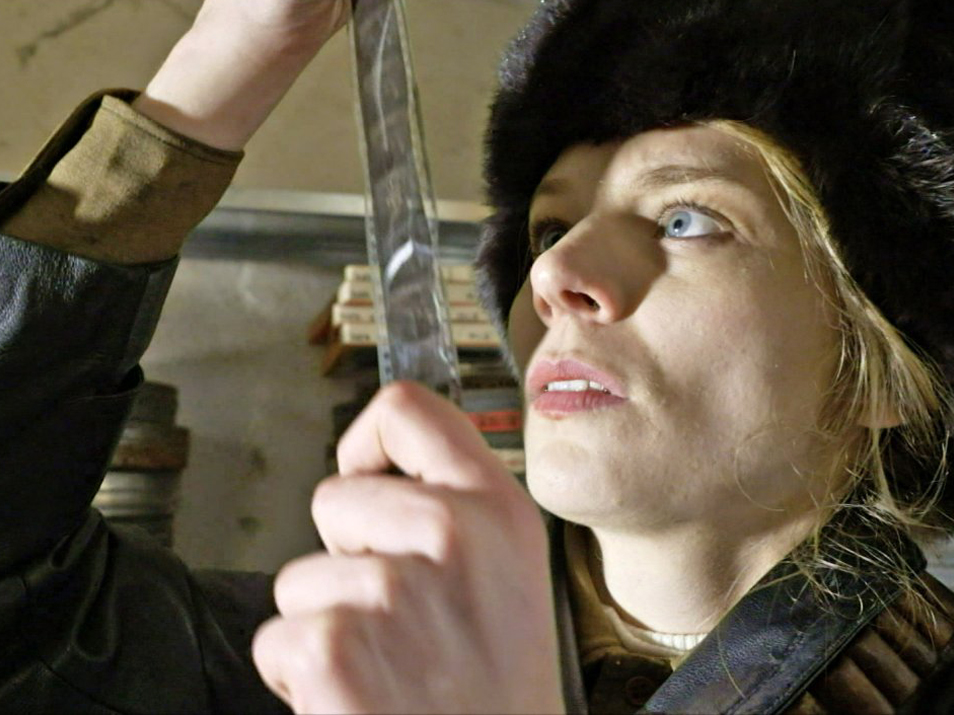
A reinvention of the Greek myth of Orpheus and Eurydice, a rock-opera on consumer societies and the rise of xenophobia in Europe, set in contemporary Manila.
“It is always good to have a new Kluge, provided you know what lies in store for you.”
Frederic Jameson1
”Directors Alexander Kluge and Khavn have both always deeply engaged with poetry and music, which comes through clearly as the film uniquely interacts with sound rather than relegating it to a secondary position behind dialogue. The score engages with the narrative and highlights the Orphic relationship to music, central to the myth. While sound plays an essential role in this film, it outshines the visual elements.”
Lora Maslenitsyna2
”Es ist eine Geschichte, die von Songs, von einzelnen Musikdarbietungen, getragen wird. Es sind Puzzlestücke, die sich zu einem neuen Bild zusammen fügen, welches anders und doch gleich ist. Es bleiben aber auch Fragmente und Bruchstücke. Diese unvollständigen Teile erschaffen ein stärkeres Bild als die Vollständigkeit und Bruchlosigkeit es könnte. Der Film soll die Fragmente, aus denen sich das Leben zusammensetzt, abbilden. Und trotzdem wird man, nachdem man den Film gesehen hat, mit einem Gefühl eines Ganzen das Kino verlassen, welches einem das Herz brechen wird.”
Khavn3
”The protagonist – now the daughter of Apollo and Nosferatu – is starting a revolution from somewhere in central Europe, aimed at bringing back to life all the dead. This aura of supernatural terror brings the action forward to the current day, transporting us to Silicon Valley: the place where real investigations into the afterlife have actually been carried out. Ultimately, the modern-day section of the film transforms the work into a satire on consumer society and the rise of xenophobia in Europe. Indeed, Orphea reflects upon immigration and the closing of borders through the reinterpretation of Greek-Latin mythology. Kluge and Khavn warn us that Trojan Aeneas wouldn’t have been able to found Rome if immigrants were no longer welcome.”
Carlota Moseguí4
”Eine starke Rolle bei der Realisierung des Films spielen die Merkwürdigkeiten, die die Quellen des Orpheus- und Eurydike-Mythos zeigen. Das, was als Stachel der menschlichen Gefühle widerstreitet und das, was der Vernunft nicht gehorcht. Diese Besonderheiten, die man schwer versteht, sind das Beste an der Geschichte und weisen auf etwas hin, wovon wir wenig wissen: Orpheus darf sich, wenn er Eurydike an die Oberwelt holt, auf keinen Fall zu ihr umdrehen. Man versteht das nicht, weil man seinen liebevollen Blick, der sich vergewissern will, dass sie wirklich nicht tot ist, verstehen kann. Warum diese strikten Verbote?”
Alexander Kluge5
- 1Frederic Jameson, “Marx and Montage,” New Left Review 58, July-August 2009.
- 2Lora Maslenitsyna, “Orphea,” The Upcoming, 26 February 2020.
- 3Khavn, “Notizen von Khavn und Alexander Kluge sowie ein Brief von Lilith Stangenberg, ORPHEA (2020),” kulturexpress.info, 20. Juli 2020.
- 4Carlota Moseguí, “Review: Orphea,” Cineuropa, 25 July 2020.
- 5Alexander Kluge, “Notizen von Khavn und Alexander Kluge sowie ein Brief von Lilith Stangenberg, ORPHEA (2020),” kulturexpress.info, 20. Juli 2020.

